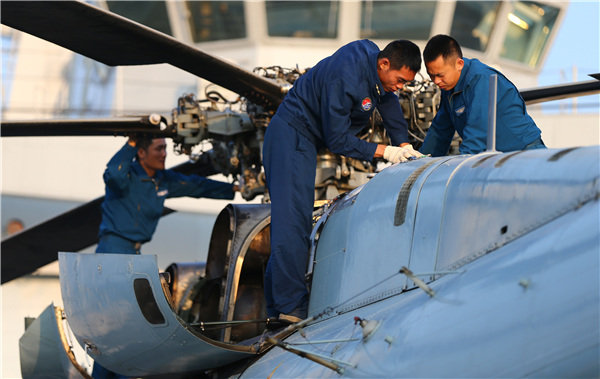
Chinese and Russian navies hold live artillery drill on Sunday.(Photo/Xinhua)
It was also the first time the China-Russia joint exercise had been held in the South China Sea.
Rear Admiral Yu Manjiang, vice-commander of the Nanhai Fleet and commander of the joint exercise, said the sea was a natural choice for the drill as the two countries have already held exercises in China's other waters.
"Some people and countries are pointing fingers at this (joint drill), but this is not necessary at all," he said, adding that it is an annual drill that does not target a third party.
A. Maxim, a lieutenant captain with the Russian navy's marine force, said the exercise had promoted mutual understanding between the two navies.
Ten Chinese ships-destroyers, frigates, landing ships, supply ships and submarines-took part in the drill as well as 11 fixed-wing aircraft, eight helicopters and 160 marines.
Also involved were Russia's large anti-submarine ships Admiral Tributs and Admiral Vinogradov, the large amphibious ship Peresvet, the sea towboat Alatau and the tanker Pechenga.
Captain Sun Hao, who was in charge of the island-seizing mission, said the marine forces of both sides could understand each other despite the language barrier.
"I noticed that during the exercise that soldiers from the two countries could communicate with body language, simple English and even eye contact," he said.
Roman Kosarev, a journalist for Russia Today who covered the drill, agreed with Sun and added: "Increasingly, language has not been a problem."



















































